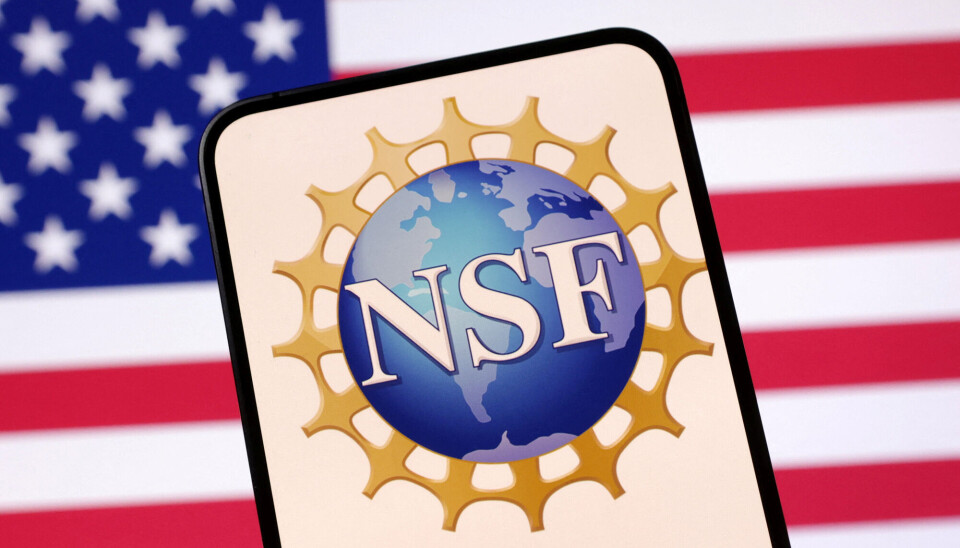Research halted by the Trump administration:
"Sad and shocking"
The American research council is experiencing heavy political interference.

At least 1,653 research projects funded by the National Science Foundation are said to have been stopped by the Trump administration.
This is revealed by investigative journalism from the British newspaper The Guardian.
The National Science Foundation (NSF) is the only national research council in the United States that funds basic research across all scientific and technological fields.
Kristin Asdal, head of the Centre for Technology, Innovation and Culture at the University of Oslo, finds the situation in the US sad and shocking.
"We now see that this is not about individual universities or individual cases, but a coordinated effort to undermine scientific research and its role in shaping public policy and governance," she says.

Peer review undermined
Previously, all research applications submitted to the NSF were reviewed by an expert panel of peers.
At that point, quality and societal benefit were the key criteria.
After the Trump administration came to power, more people now want to have a say.
Most viewed
The American research council has experienced political interference on an unprecedented scale, according to the article in The Guardian, which has spoken to several former and current NSF employees.
Doge has the final say
The Department of Government Efficiency (Doge), a politically appointed body under the Trump administration, has stopped at least 1,653 ongoing research projects.
This information comes from Grant Watch, an initiative that tracks research projects that have been rejected or cancelled, writes The Guardian.
"Before Trump, the review process was based on merit and impact. Now, it's like rolling the dice, because a Doge person has the final say," a program officer at NSF told the newspaper.
Projects focusing on the unequal impacts of climate change and other environmental hazards are especially at risk.
New applications are now also scrutinised for any link, direct or otherwise, to diversity, equity, or inclusion, employees at the NSF tell The Guardian.
Doge has the authority to stop a project without offering any explanation.
Stepping down from scientific leadership
The NSF has funded research that has led to major breakthroughs in everything from organ transplantation and artificial intelligence to the internet and extreme weather forecasting.
What's happening now could have devastating consequences for the US, which is voluntarily giving up its leadership in several research fields to competitors such as China.
That's what a program officer at NSF tells The Guardian:
"There has never in the history of the NSF been anything like this. It's disgusting what we're being instructed to do."
The research council has also experienced cuts to staffing, research programmes, and funding.
Several employees at NSF describe the cancellations as 'unprecedented' and 'arbitrary.'
"You never just throw proposals in the garbage can”
While it is common for new administrations to adjust priorities, NSF staff say this level of political interference into peer-reviewed research is unlike anything they have seen before.
"You never just throw proposals in the garbage can,” an employee at NSF tells The Guardian.
The NSF did not wish to comment on the anonymous statements from program officers to The Guardian. They refer to their website:
'The principles of merit, competition, equal opportunity, and excellence are the bedrock of the NSF mission. NSF continues to review all projects using Intellectual Merit and Broader Impacts criteria.'
The beacon is being shut down
The US has long been a beacon of science and academic freedom.
The cuts at NSF come in addition to dramatic cuts in funding and staffing at several other US research organisations in recent months.
These include NOAA (National Oceanic and Atmospheric Administration), EPA (Environmental Protection Agency), and USGS (US Geological Survey).
Mari Sundli Tveit, director of the Research Council of Norway, is deeply concerned about the situation in the US.
"The developments we're now seeing in American research are dramatic and chaotic, and deeply worrying," she said in a press release earlier this year (link in Norwegian).
She believes this will primarily affect American scientists and research, but it will also have serious consequences for global research and knowledge development.
Democracy under threat
"Science has always been driven by international collaboration, and the US has played a crucial role in that," Kristin Asdal tells Science Norway. "Especially since World War II, American support for research and the way it has been organised has had far-reaching international impact."
When the Nazi regime in Germany persecuted scientists and shut down avenues for free research, the US was there to receive them, she reminds us.
"That's the open society we're now seeing being shut down," she says, adding:
"That's why it's important not to see this solely as a matter of research, even though that in itself is serious. It's about undermining and challenging democratic institutions like libraries, cultural institutions, and the judiciary."
The common thread in all of this is the introduction of arbitrariness, perhaps the most central feature of a non-democratic regime, Asdal believes.
———
Translated by Alette Bjordal Gjellesvik
Read the Norwegian version of this article on forskning.no
Related content:

Subscribe to our newsletter
The latest news from Science Norway, sent twice a week and completely free.

























































